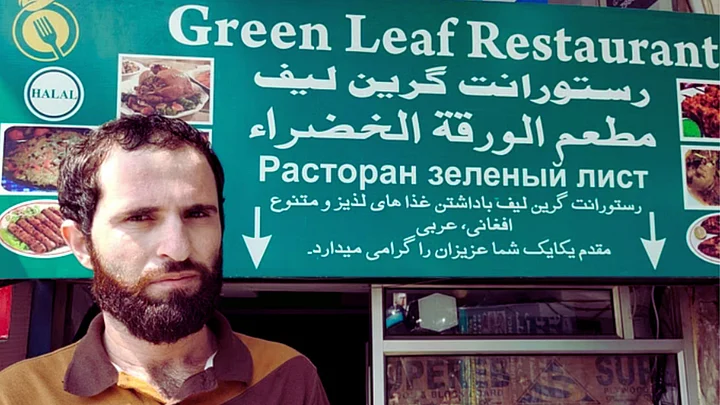It’s exactly a year since India reopened its shuttered embassy in Kabul to reclaim lost ground and exert its influence in Afghanistan. Like other countries, India hasn’t recognised the Taliban regime which captured power in August 2021 after the US-NATO pullout. India had packed its bags and left Afghanistan fearing the worst after the Taliban takeover.
But after ten months and a few exploratory sorties, New Delhi re-established its diplomatic presence in Kabul on 23 June 2022 to engage Afghanistan’s new rulers on their turf.
Counterterrorism cooperation with the Taliban is clearly a top priority of Prime Minister Narendra Modi’s government. But whether India has made any headway or not in the past year on this front is a matter of pure conjecture. Security-related talks are held among intelligence services behind closed doors and are not for public consumption.
New Delhi expects the Taliban to ensure that Afghan soil is not used for mounting attacks inside India, especially Jammu & Kashmir, in return for the Modi government’s developmental aid and humanitarian assistance. Naturally, the give-and-take talks are veiled in secrecy.
Patently Discriminatory and Outright Communal Process
But there is nothing secret about another facet of India’s Afghanistan policy: New Delhi has stopped giving visas to Muslim Afghans.
The ban came into force immediately after the Taliban takeover and the closure of the Indian embassy in August 2021 when all existing visas were suddenly cancelled and Afghans were told to apply for new e-visas online. A whole year has elapsed since the embassy reopened but India still refuses to issue visas to Muslim Afghans.
New Delhi is however giving visas to Hindu and Sikh Afghans. In fact, India will soon start issuing multiple entry visas to non-Muslim Afghans rubbing salt into Muslim Afghans’ wounds. According to figures tabled by the Ministry of Home Affairs (MHA) in Parliament in December 2021, out of 60,000 Afghan applicants for e-visas only 200 were granted visas. Although religion-wise break-up was not provided, the lucky ones were obviously Hindus and Sikhs and the unlucky 59,800 were Muslims!
According to one estimate, MHA has so far denied visas to more than a lakh applicants and the number is growing thanks to the embargo. The worst hit is Afghan students enrolled in Indian universities with ICCR scholarships, patients in dire need of medical treatment, Afghan spouses of Indian nationals, traders, and businessmen whose ordeal is no secret to readers of The Hindu, The Indian Express, and Al Jazeera. But the Modi government has dug its heels in; there is no respite or any signs of a rollback.
With religion determining eligibility for Indian visas for Afghans, the whole process is patently discriminatory and outright communal. The faith criterion undermines India’s secular constitution and is obviously dictated by the yet-to-be-implemented Citizenship Amendment Act (CAA) of 2019 which facilitates citizenship of Hindu, Sikh, Buddhist, Jain, Parsi, and Christian immigrants from Afghanistan, Pakistan, and Bangladesh but excludes Muslims.
Goodwill Among Afghans?
In October 2022, External Affairs Minister S. Jaishankar said in Vadodara that “nobody can doubt India’s feeling for Afghans” but cited “security concerns” and said that applicants will have “to wait for [a] level of trust and efficiency” to return for visas to be restarted. Jaishankar was compelled to speak in Vadodara because he was confronted by angry Afghan students whose visas were revoked in August 2021, who have been refused e-visas and therefore can’t go home because they won’t be able to return to India to resume their studies.
As Afghanistan is 99.7 percent Muslim, the calibrated and cold-blooded denial of visas to Muslim Afghans makes a mockery of India’s claims of civilisational and people-to-people-links with that country. Jaishankar, Ajit Doval, and Modi keep making statements like “India has always stood and would stand with Afghan people” and “our long-standing investment in the people of Afghanistan has earned us tremendous goodwill and cemented the civilisational bond between our two countries.”
Besides professing love and concern for ordinary Afghans in every official statement -- even as we refuse them visas simply because they are Muslims -- New Delhi persistently claims that it enjoys enormous goodwill among Afghans. But this is a fallacy.
Consider this: India’s role in Afghanistan from 1979 to August 2021, spanning 42 long years, has directly impacted common Afghans and shaped their perception of India. One can well imagine how fiercely independent Afghans view India, which, in a row, sided with not one but two invaders -- the Union of Soviet Socialist Republics (USSR) and the United States (US) -- and their occupation forces. Can we blame Afghans if they perceive India as their enemies’ collaborators and detest us?
We have forfeited the trust of Afghans twice over. I think Afghans have a very low opinion of us essentially because we allied with two invading superpowers who unsuccessfully tried to subjugate them. But we refuse to learn any lessons from history. Now, by singling out Muslim Afghans since August 2021 and denying them visas even after reopening our Kabul embassy a year ago, India is making matters worse.
(SNM Abdi is a distinguished journalist and ex-Deputy Editor of Outlook. This is an opinion piece and the views expressed are the author’s own. The Quint neither endorses nor is responsible for them.)
(At The Quint, we question everything. Play an active role in shaping our journalism by becoming a member today.)
